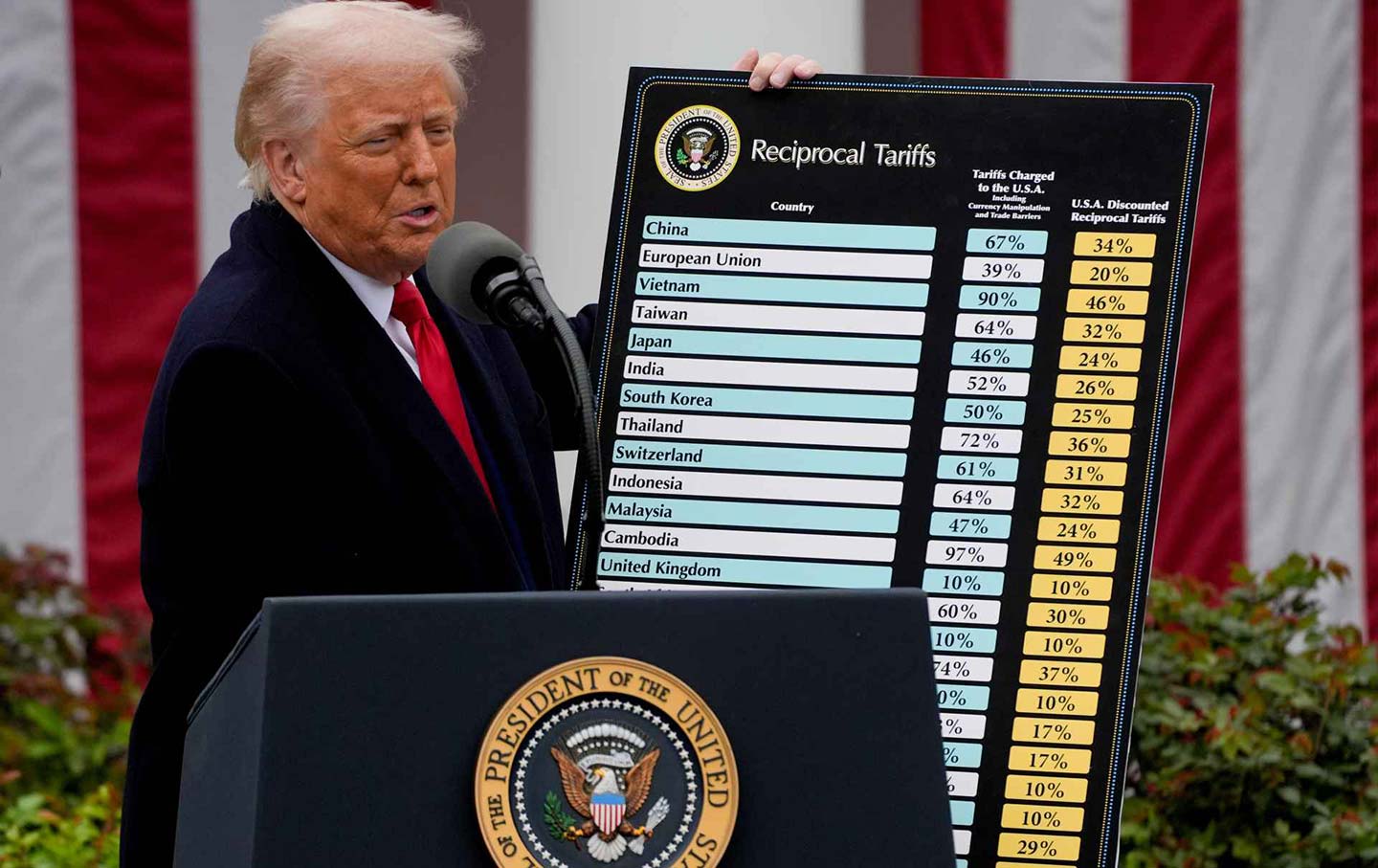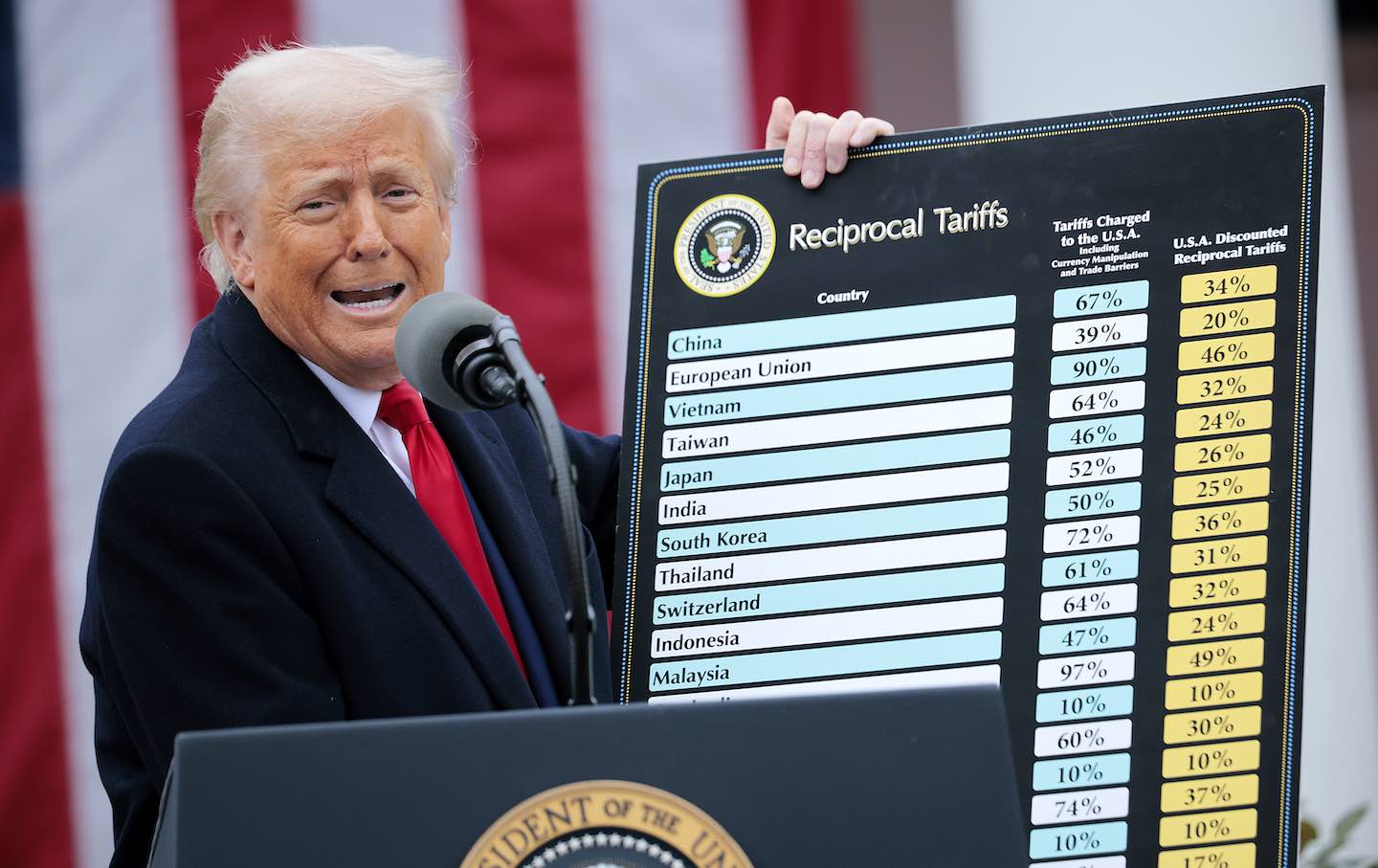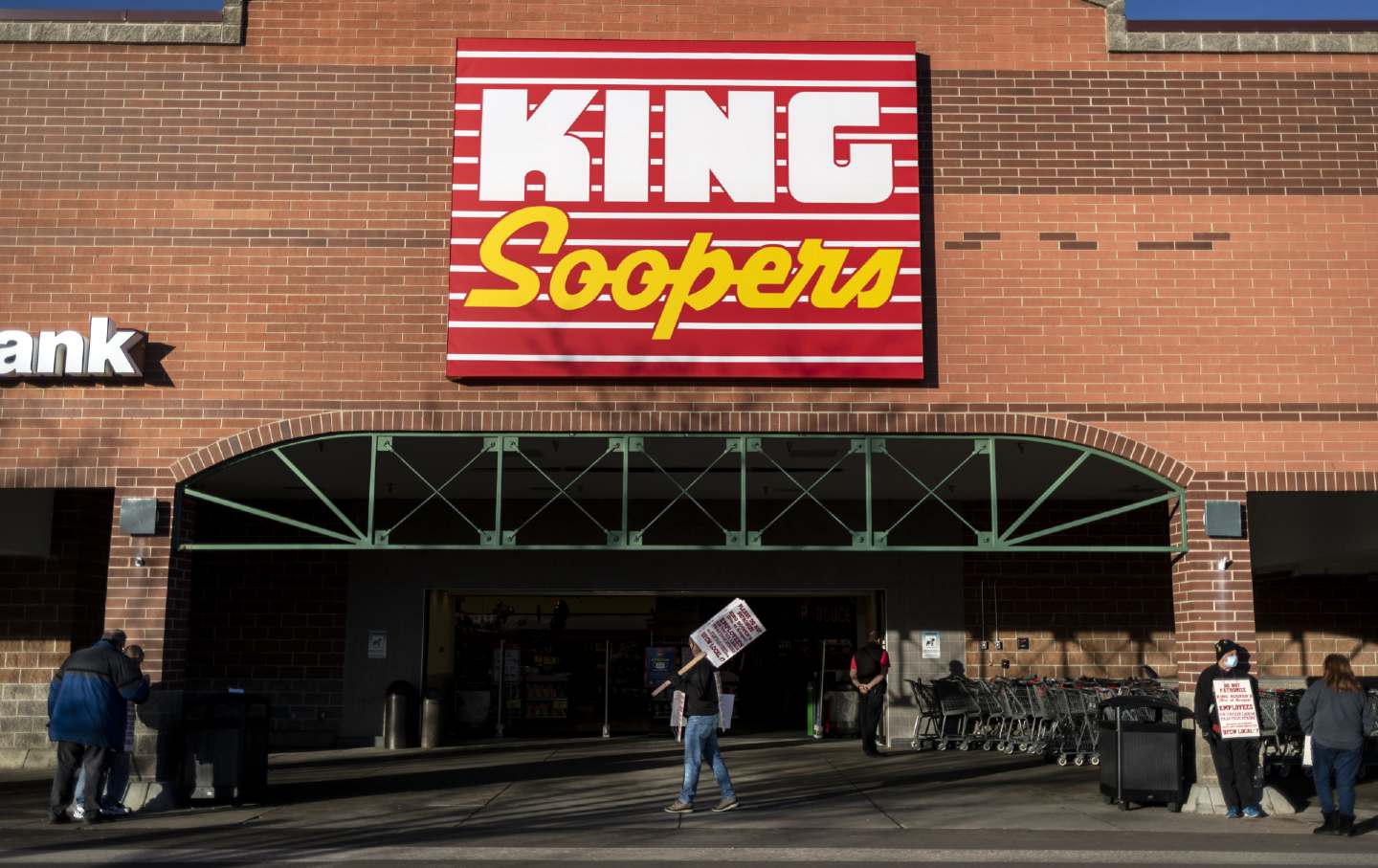The World’s Biggest Pension Fund Is Taking a Hard Look at Labor Practices
“There are lines that cannot be crossed,” said a member of the board of California’s Public Employees Retirement System.

Businesses operating at the Tom Bradley International Terminal at LAX Airport.
(Allen J. Schaben / Los Angeles Times)California’s $500 billion Public Employees Retirement System (CalPERS) is the biggest public pension fund on Earth. Last week, the board that manages it met to discuss how to move toward new investment requirements that would put the labor practices of firms owned by giant private equity investor groups under scrutiny. It sounds technical, but it’s actually pretty straightforward, and it could, at long last, represent a seismic shift in how those behemoth firms are held to account. The meeting came hot on the heels of a White House gathering that President Biden convened in late April with top pension fund managers in which he asked the funds to use their financial muscle to secure decent labor principles at companies they invested in.
CalPERS parks an awful lot of its dollars in private equity companies that in turn buy up a range of properties, from hotel chains—up to 40 percent of the hotels in America are now held by private equity companies—to slaughterhouses to gold mines to rental homes, and everything in between. Many of those companies have, at best, dubious labor records: employing underage children in dangerous jobs, overlooking sexual harassment in the workplace, stealing wages from workers, taking advantage of undocumented immigrants, and so on. To date, the private equity companies that own these smaller businesses have skated on these atrocious labor records. When challenged, they’ve generally hewed to the notion of plausible deniability, arguing that they can’t be expected to know whether each and every company they fund pays attention to workplace standards.
Now, at the urging of unions, especially in the hospitality sector, CalPERS is considering ways to ensure accountability. It is moving toward a policy whereby for all multibillion-dollar investments, the members of the Board of Administration will look at labor records when deciding whether to send money to individual private equity funds. Given the financial muscle of CalPERS, and the fact that where California goes much of the rest of the country often follows, this could rapidly become a powerful exercise in shareholder activism.
“Last year,” says Lisa Middleton, a Palm Springs city councillor and one of the CalPERS Board of Administration members, “many of us on the Board of Administration raised multiple questions regarding numerous reports we had received regarding labor practices at firms that had received private equity funding from CalPERS and numerous other organizations. We started talking about putting labor standards into investment decisions.”
The intent, Middleton says, is to “make it clear there are lines that cannot be crossed.” She gives three examples: a company that was using undocumented immigrant children, left to navigate their lives in the US without adult supervision, to work on the slaughterhouse floor; health insurers who engaged in particularly aggressive negotiating tactics and routinely under-staff their hospitals to pinch pennies; and a Southern California supermarket chain that reputedly has a pattern of turning a blind eye to the sexual harassment and physical intimidation of employees who are trying to organize into a trade union.
One hotel operator in Los Angeles reportedly used underage asylum seekers as strike breakers during the recent hotel strikes. CalPERS has apparently had private communications with the private equity company that owned the hotel operator, informing them that they were lowering the fund’s investment in the company as a result and that they might consider entirely ending their business relationship if labor conditions didn’t improve.
In the early years of this century, labor attorney Richard G. McCracken pioneered “Labor Peace” agreements, in which unions agree to take the possibility of strike action off the table in exchange for fair negotiations. Over the years, large numbers of cities, including New York and Los Angeles, have included Labor Peace language for many industries involving critical infrastructure. Such agreements, when they have been implemented, are a win-win for all parties. They reduce the likelihood that municipal assets such as airports will be affected by strikes and ensure continuity of operations for businesses.
LAX airport is probably the best example of a workplace with a Labor Peace agreement in place. Seventeen years ago, all but one of the companies doing business in the airport signed such deals, and in those years the only company to face a strike is the one that didn’t do so. At the same time, those companies, not having to worry about labor strife, have become safer investments. If you’re in charge of investing large pools of money for a pension fund, it’s the sort of situation that would likely have an appeal.
Middleton says that such agreements are “a really interesting idea.” But, she adds, the pension funds haven’t yet found a way to incorporate them easily and effectively into their investment strategy. She says she has asked CalPERS staff to look at the issue to see if they can find a way to make it work. “It’s certainly on my radar. I’ve raised the question, as have others,” she adds. She and her colleagues are hoping to find a way to set up a pilot program to see what can be done on this front.
“Those organizations that have the safest and most cooperative workplaces are one that over time will outperform financially organizations with negative workforce practices,” Middleton argues. “We want the free-market system to outperform what it has done in the past, and proper treatment of employees is integral to market performance.”








